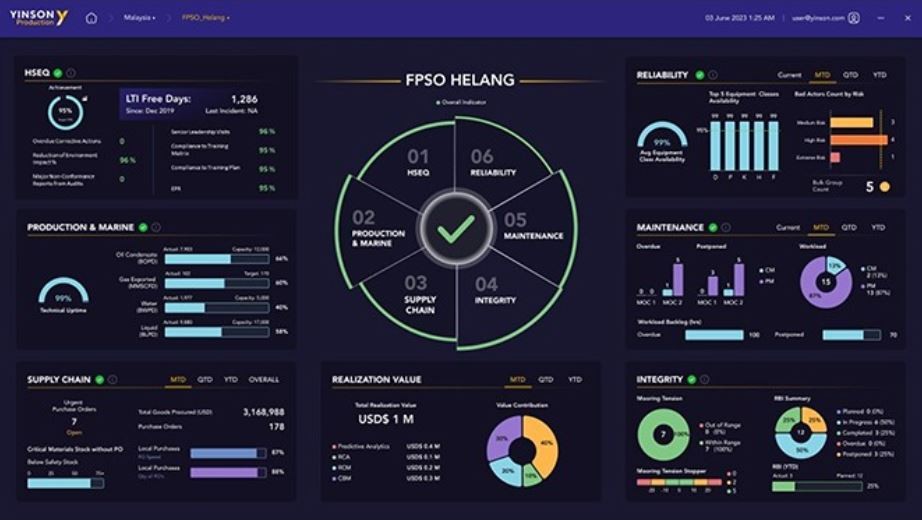Autonomous operations: The key to sustainably capitalizing on FPSO market growth
Posted: January 03, 2024
In deep and ultradeep waters, floating production storage and offloading (FPSO) and floating storage and offloading (FSO) vessels and their crews are stationed in remote, often dangerous locations. FPSOs are equipped with hydrocarbon processing equipment, enabling the oil and gas industry to separate and treat crude oil, water, and gas. As exploration and production activities increase, the FPSO market is expected to grow from US$11.10B in 2023 to US$16.69B by 2028 and register a CAGR of 8.5% during that same period.
Yinson designs, constructs, and operates FPSOs and FSOs and is committed to improving global access to stable, affordable energy while reaching its goal of net-zero emissions by 2050. Currently, the company is working closely with partners to create a zero-emissions FPSO concept. To reach its climate goals and safely and efficiently keep up with ever-increasing market demands, Yinson partnered with AVEVA to move from conventional to autonomous operations.
The advent of Project Polaris
Yinson’s partnership with AVEVA, named Project Polaris, aims to combine our industry and technology expertise with its in-depth knowledge of the industry and FPSOs. Project Polaris is an integrated asset management solution consisting of AVEVA™ Asset Strategy Optimization, AVEVA™ Predictive Analytics, AVEVA™ BI Gateway, AVEVA™ Unified Operations Center, and AVEVA™ Work Tasks used in conjunction with existing solutions including AVEVA™ PI System™. It’s designed to improve the overall operations, maintenance, and reliability of the FPSO assets and drive toward sustainable, autonomous operations.
Conventional asset
Autonomous asset
Conventional asset
- Basic digital adoption
Autonomous asset
- Systems optimization
Conventional asset
- Maintenance management
Autonomous asset
- No fire-water system
Conventional asset
- Physical inspections
Autonomous asset
- Smart maintenance
Conventional asset
- Condition monitoring on selected equipment
Autonomous asset
- No accommodation, helideck or lifeboats
Conventional asset
- Preventive maintenance
Autonomous asset
- No crains & limited storage
Project Polaris aims to move FPSOs from conventional assets to fully autonomous, sustainable operations
Using a unified operations center that provides a common user experience across the organization, Project Polaris is already helping Yinson overcome business challenges. From visualization to predictive analytics, Project Polaris integrates with existing applications and is scalable, allowing the solution to continue to gain value while reaching goals for 15 unique use cases. By monitoring asset reliability and efficiency, users can understand asset health and performance to make data-driven decisions that optimize operations, reduce unplanned downtime to zero, prevent failures, and maximize production through effective asset lifecycle management.
 A sample visualization shows how users can easily see the status of an FPSO and its progress toward reaching key performance goals.
A sample visualization shows how users can easily see the status of an FPSO and its progress toward reaching key performance goals.
Thanks to Project Polaris, Yinson has reduced overall maintenance costs, unplanned breakdowns, operational downtime, and work order execution and management time. Overall, the solution has enabled Yinson to improve planned maintenance, resource planning, and overall equipment efficiency while ensuring engineering gets the critical feedback it needs for FPSO design. By optimizing asset analysis and collaboration and spare parts inventory while increasing asset visibility, control, and contextualization, Yinson is well on its way toward sustainable, autonomous operations.
Want to learn more about moving your FPSO operation toward autonomous operations? Connect with our team today.
Related blog posts
Stay in the know: Keep up to date on the latest happenings around the industry.